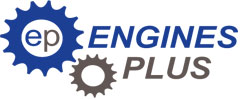
At Engines Plus, we know that keeping your engine’s coolant at the correct level is vital for preventing overheating and ensuring optimal performance. In this blog, we’ll guide you through the process of checking your engine coolant level while the engine is cold, emphasising the importance of this simple yet essential maintenance task.
Why Check Engine Coolant Levels?
Engine coolant (antifreeze), is essential for regulating engine temperature and preventing freezing in cold weather. Low coolant levels can lead to overheating, engine damage, and costly repairs so regular checks ensure your engine stays cool and operates efficiently.
Checking Coolant Levels: It’s important to check your engine coolant level when the engine is cold to avoid potential burns from hot coolant.
Here’s how to do it:
- Remove Cap from Manifold Cooler: Locate the manifold cooler, usually positioned near the engine. Carefully remove the cap by twisting it anti-clockwise. Be cautious as some coolant may spill out.
- Check Water Levels: Once the cap is removed, visually inspect the coolant level inside the manifold cooler. The level should be between the “minimum” and “maximum” markings on the side of the reservoir. If it is below the minimum mark, it’s time to add more coolant.
- Reinstall Cap: After checking the coolant level, securely reinstall the cap onto the manifold cooler by twisting it clockwise. Ensure it is tightened properly to prevent any leaks.
Regularly checking engine coolant levels when the engine is cold is vital for preventing overheating and maintaining optimal performance. Follow these recommended steps, and safety precautions, to avoid costly repairs. Remember to remove engine keys and turn off battery isolator keys before starting any work for safety. If unsure or encountering issues, contact our expert team at Engines Plus for assistance. Keeping your engine cool is key to achieving smooth operation for many years to come.
For further information and expert advice, get in contact with the Engines Plus team today.
